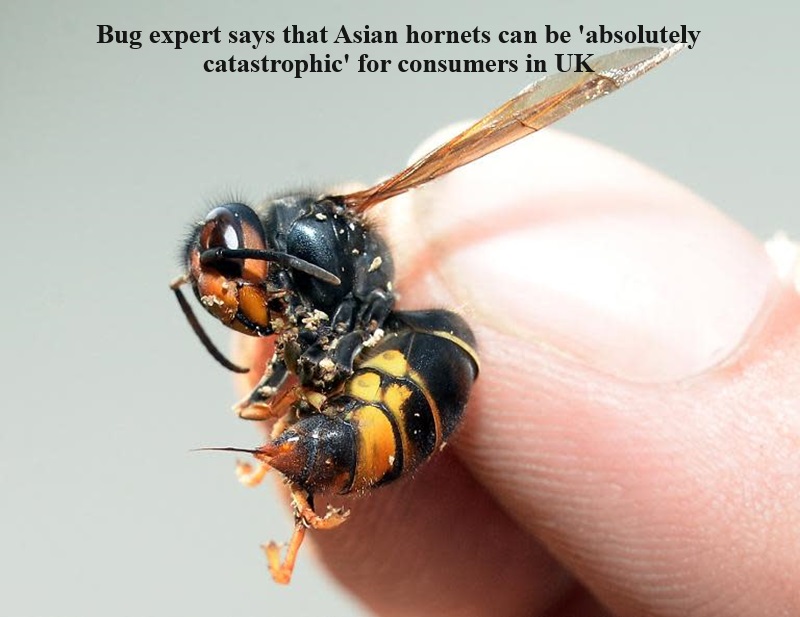
Buglife charity’s Director of Communications and Engagement, Paul Hetherington, has issued a warning about the potential ecological impact of Asian hornets if they establish themselves in the United Kingdom, emphasizing their reputation for consuming other insects.
Hetherington highlighted the threat posed by Asian hornets, which can devour up to 50 honeybees daily, following the earliest sighting in the UK on March 11. These flying insects, measuring approximately 25 millimetres in length with queens reaching around 30 mm, possess black abdomens and distinctive yellow leg ends, setting them apart from European hornets. They have a diet that includes honeybees and bumblebees.
The Buglife representative noted that Asian hornets were first observed in the UK in 2016, underscoring their potential to decimate bee populations due to their predatory habits. Hetherington expressed particular concern regarding the presence of these hornets in southern England, where some of the nation’s rarest bumblebees are found, highlighting the vulnerability of such populations to devastation.
Moreover, Hetherington stressed the dire consequences for consumers if Asian hornets proliferate, as they target bees crucial for pollinating crops. He estimated that the loss of all pollinators would significantly inflate the UK’s food costs, particularly for items like fruit and peas, necessitating costly manual pollination efforts.
Despite efforts to prevent their entry into the UK, the task remains challenging due to the hornets’ established presence in Northern France since 2004. Initially sighted in southwest France, Asian hornets are believed to have arrived in Europe through a shipment of Chinese pottery. Presently, they have spread to various European countries, including Spain, Belgium, the Netherlands, Portugal, Italy, Switzerland, Germany, and Jersey.

Post Your Comments